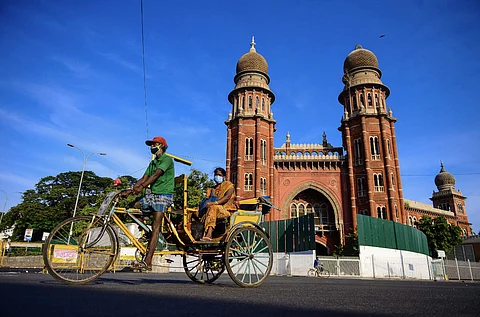
- News
- Campus
- Exam
- Podcast
- Web Stories
- Do You Know
- Path Finders - UG Programs
- Videos
- Book Review

The Madras High Court (HC) ruled that the State Minority Commission lacks the authority to request data from a minority educational institution to prove its adoption of the reservation policy.
According to Justice L Victoria Gowri, minority educational institutions are exempt from the scope of Article 15(5), which gives the state the authority to make special provisions of law for the advancement of socially and educationally backward classes of citizens or Scheduled Castes or Scheduled Tribes (SCs/STs) in terms of admission to educational institutions, including private institutions.
The court was considering four petitions from different minority institutions that contested the procedures put forth by the Member Secretary of the State Minority Commissioner.
This directive required colleges to send officials along with a letter of authorisation from the Principal and admission details for the past three academic years, according to LiveLaw.
During the proceedings, it was said that the commission intended to ensure that the guidelines on the minority institution were quickly followed as per the Government Order of the Higher Education Department and the Personal and Administrative Reforms Department.
The colleges argued that the commission lacked the jurisdiction to establish admission requirements for minority institutions. The Tamil Nadu Private Colleges (Regulation) Act did not empower the commission to mandate any proportion of admission to private minority educational institutions, they said.
It was argued that the commission aimed to undermine the rights provided to minority institutions under Article 30 of the Constitution.
The court concurred with the colleges, noting that, under Section 8(2) of the Tamil Nadu State Minorities Commission Act, the commission might offer recommendations to the government, which would be put before the legislative assembly, along with the proposed action on the suggestions.
The court stated that the commission's power under the act was to protect communal harmony in the state by monitoring the operation of the act's safeguards. The court also stated that the panel was expected to work towards avoiding prejudice against minorities.
However, in this case, the court found that the commission attempted to check anything without a valid reason. The court concluded that the commission had violated the functions outlined in the Tamil Nadu State Minorities Commission Act, 2010.
Thus, finding that the proceedings begun by the commission would not withstand legal examination, the court disposed of them.
